Alexander the Great primarily spoke a form of Greek, though the exact nature of the language spoken by ancient Macedonians remains uncertain and debated. The evidence about the Macedonian language is limited and inconsistent, making it difficult to categorize clearly. Linguistic data, inscriptions, and ancient testimonies hint toward Greek knowledge, but the local dialect and its relationship with Greek are complex.
Macedonian names incorporate Greek elements, indicating that Greek was well known among the Macedonians. Archaeological findings, such as inscriptions in Macedonia, typically use Attic Greek, a dialect spoken in Athens and parts of southern Greece. This suggests that Attic Greek was used officially or in public records, showing considerable Greek cultural influence or bilingualism.
The Pella tablet, an inscription discovered in the Macedonian capital, points to knowledge of a Northwest Greek dialect. Some scholars conjecture that the ancient sources’ term “Macedonian” refers to this Northwest Greek speech variety. However, this remains speculative and contested because phonological evidence shows notable divergence from known Greek dialects.
- The phonology of Macedonian diverges from mainstream Greek dialects predating the Mycenaean era. In particular, aspirated voiced plosives (sounds like *bh* and *dh*) in Greek became voiceless aspirated plosives (*ph*, *th*), while Macedonian retained de-aspirated voiced plosives.
- Examples include names like Berenike (Macedonian) instead of Phere-, and vocabulary such as kebalá corresponding to Greek kephalḗ (“head”).
Vocabulary from Macedonian shows a mixture:
- Some Macedonian words are loanwords from other Greek dialects, demonstrating ongoing contact.
- Some terms seem entirely non-Greek, like the word for “boar” alíē.
- Others share common ancestry with Greek words but aren’t direct borrowings.
Ancient authors provide conflicting testimonies. Plutarch writes that “speaking Macedonian” (makedonízein) was not understood by Greeks, indicating a distinct language or dialect. He adds that the Ptolemaic rulers, originally Macedonian, ceased speaking Macedonian, though they continued speaking Greek. Athenaeus notes Attic speakers who “spoke Macedonian” and used Persian loanwords, suggesting a complex linguistic environment.
Herodotus, the early Greek historian, recounts that Alexander I of Macedon had to prove his descent from Greek colonists at Olympia to compete, implying a perceived difference between Macedonians and Greeks in his time.
Historians Polybius and Livy portray Macedonians in relation to Greeks differently. Polybius emphasizes a shared ethnic origin stating Macedonians are “of the same race” as Greeks. Livy reports a Macedonian ambassador grouping Macedonians with Aetolians and Acarnanians as sharing a language distinct from the Romans.
The main conclusion is that the Macedonian language likely stood somewhere between a heavily influenced Greek dialect and a closely related, yet distinct, Indo-European language. It probably diverged early from the Greek dialect continuum. This view is shared by linguist Geoff Horrocks, who describes Macedonian as either an unusual Greek dialect or a related Indo-European dialect that separated from early Greek dialects during the second millennium BC.
Roger Woodard highlights the ongoing uncertainty about the Macedonians’ linguistic identity. Though Greek culture and language spread widely under the reign of Philip II and Alexander the Great, it remains unclear if Greek was the original native tongue of Macedonian peoples.
| Aspect | Details |
|---|---|
| Language Evidences | Inscriptions mostly in Attic Greek; Pella tablet showing Northwest Greek forms |
| Phonology | Macedonian retains certain voiced plosives lost in Greek dialects |
| Vocabulary Mix | Greek loans, non-Greek words, shared ancestral words with Greek |
| Ancient Testimony | Plutarch, Athenaeus indicate Macedonian differs from Greek; Polybius/Livy see ethnic and linguistic kinship |
| Modern Linguistic View | Highly aberrant Greek dialect or close Indo-European relative; strong Greek influence |
Key takeaways:
- Alexander the Great spoke a form of Greek or a closely related dialect.
- Macedonian language evidence is scarce and contradictory.
- Macedonian phonology and vocabulary differ noticeably from classical Greek dialects.
- Ancient sources describe the Macedonian language as distinct yet influenced by Greek.
- Modern scholars agree Macedonian was either a strange Greek dialect or a language closely related to Greek.
What Language Did Alexander the Great Speak?
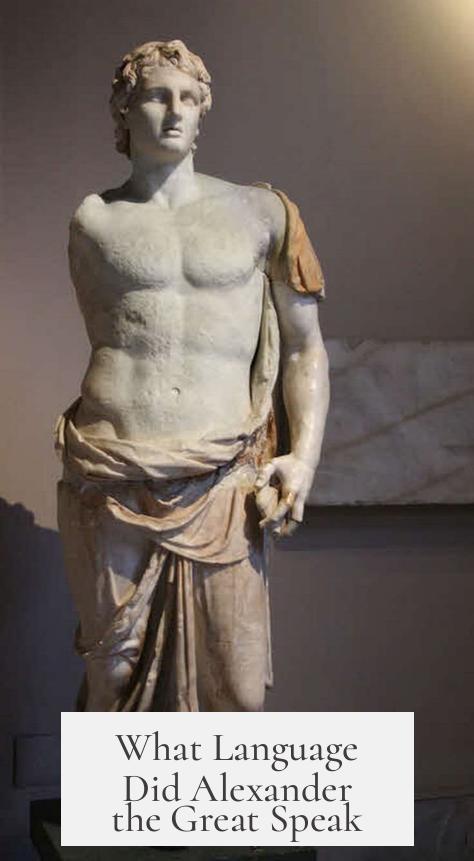
Alexander the Great spoke a version of ancient Macedonian, a language that carries a cloud of mystery wrapped in Greek influence. But what exactly was this language? Was it Greek or something close yet distinct? Let’s dive into the murky waters of ancient tongues to uncover the truth.
When we talk about Alexander’s language, we’re really asking about ancient Macedonian. Unfortunately, this language is one of history’s little puzzles: the evidence is sparse, complicated, and at times, contradictory.
The Linguistic Puzzle of Macedonian
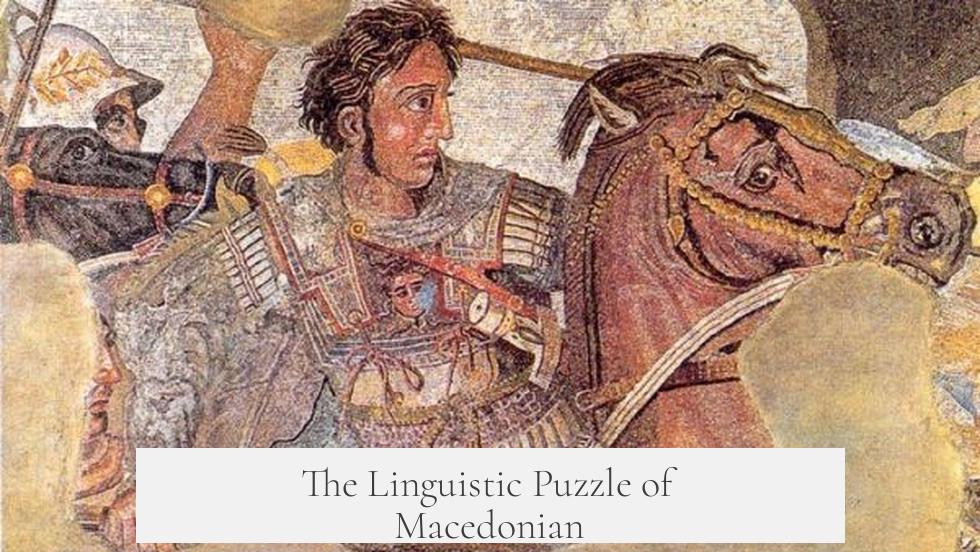
Archaeologists and linguists face a tough job here. Macedonian language isn’t clearly classified. We have only fragments, inscriptions, and some scattered vocabulary. Even these hints pull us in different directions.
For example, many Macedonian names contain clear Greek elements. This isn’t a small detail — it shows that Greek culture and language were definitely in the mix. Names like “Berenike” and “Phere-” have roots that hint at both being related but also uniquely pronounced in Macedonian.
Inscriptions found in Macedonia itself are often written in Attic Greek, the dialect spoken in Athens. This strongly suggests Macedonians knew Greek. More specifically, the famous Pella tablet discovered in the Macedonian capital reveals knowledge of Northwest Greek dialect nuances. Some experts even speculate ancient Macedonian might be this Northwest Greek. But, this idea doesn’t neatly fit all pieces, especially phonological quirks.
A Divergent Dialect or a Different Language?
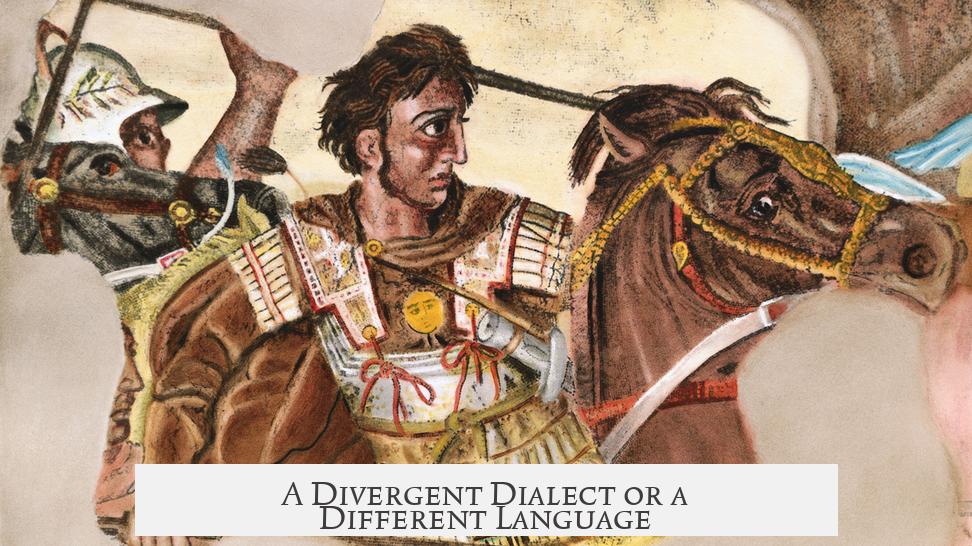
One fascinating twist is found in the sounds of the Macedonian language. Mainstream ancient Greek dialects softened certain voiced plosives (*b^(h)-, *d^(h)-) into sounds beginning with “p” and “t.” For example, the Greek root for “eat” transitioned from b^(h)eh2go- to p^(h)ag-. But Macedonian DID NOT follow this trend. Instead, it made these sounds less breathy, keeping the “b” and “d” somewhat intact. Examples like “Berenike” (instead of Greek “Phere-”) show this clearly.
Vocab-wise, Macedonian is a mixed bag. Some words are Greek loanwords adapted with different accents or spellings. Others are completely non-Greek, like “alíē” for “boar.” And then some are cousins of Greek words — from a common ancestor, but not borrowed directly. This linguistic cocktail hints at a culture living in the crossroads.
What Did Ancient Writers Say?
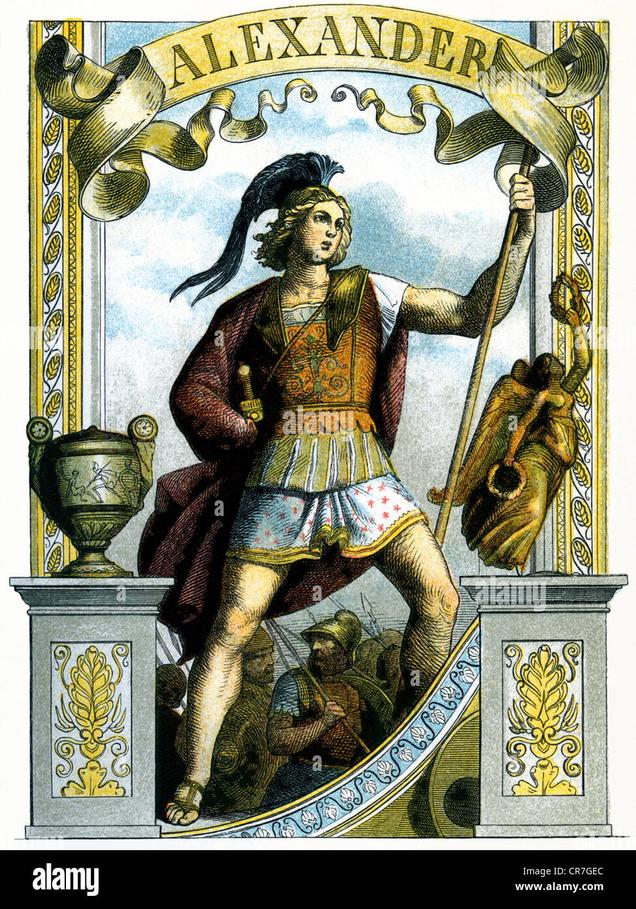
Ancient authors like Plutarch throw additional intrigue into the mix. He mentioned “speaking Macedonian” as being unintelligible to Greeks, which suggests Macedonian wasn’t simply a Greek dialect. Plutarch even notes that Egypt’s Ptolemaic rulers eventually gave up speaking Macedonian but kept Greek. Athenaeus also comments on Macedonian speech, linking it to a unique trait among Attic Greek speakers who incorporated Persian loanwords.
Herodotus, the famous historian, described Alexander I of Macedon — an ancestor of Alexander the Great — as claiming Greek origins to justify participating in Greek games. This suggests a cultural overlap but underlying distinction.
Polybius, another historian, said Macedonians and Greeks were “of the same race.” Livy describes Macedonians sharing language with certain Greeks but sharply distinguishing Romans as a different “race.” This blend of identity shows the ancient Macedonians hovered on the border between “Greek” and “other.”
The Verdict: A Blended Language with Greek Roots
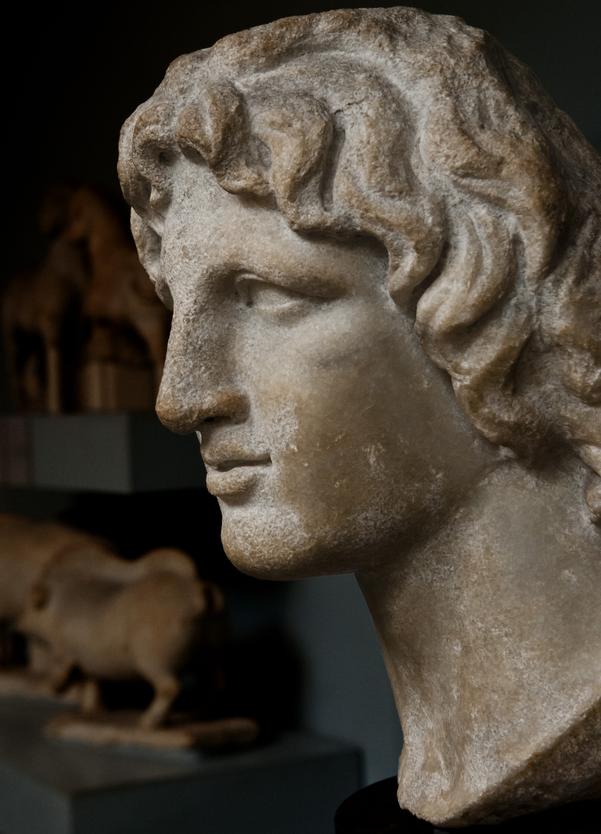
So, what’s the final word? Sadly, no clear yes or no answer exists. The best conclusion is that Macedonian was either a very distant branch of Greek or a close Indo-European relative influenced heavily by Greek over time. This would mean Alexander spoke a language that was unique but still familiar to Greek speakers.
Experts like Geoff Horrocks consider these scraps as an “aberrant Greek dialect” or a kindred Indo-European tongue. Roger Woodard highlights the uncertainty, reminding us that while Greek culture flourished under Alexander’s reign, the native tongue of the Macedonian people might not have been classical Greek as we know it.
Why Does This Matter Today?
Understanding Alexander’s language isn’t just about history trivia. It sheds light on how cultures blend and languages evolve. It helps us appreciate the complexity behind one of history’s greatest figures. Alexander’s speech symbolized more than words—it was a bridge between worlds.
Think about it: Alexander united an empire stretching from Greece to India. His command over language and culture helped spread ideas, stories, and knowledge in Greek but rooted in a mosaic of tongues and traditions.
Next time you hear “Alexander the Great,” remember he spoke a language that defied simple labels. It was a voice from the frontier of ancient cultures, carrying echoes of Greek spirit, local roots, and evolving identity.
Takeaway
- Alexander the Great spoke an ancient Macedonian language with strong Greek influences.
- Macedonian had unique linguistic features setting it apart from classical Greek dialects.
- Ancient sources confirm Macedonian as distinct enough to sometimes be unintelligible to Greeks.
- The language likely functioned as a bridge between Greek and local dialects around Macedonia.
- Historians broadly agree Macedonian was either an odd Greek dialect or a closely related language.
Curious about learning ancient languages or uncovering other historic linguistic puzzles? The story of Alexander’s tongue reminds us history is full of fascinating grey areas begging for exploration.




